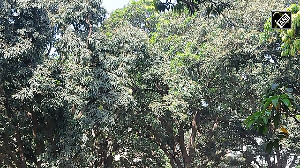Acknowledging that the situation in Jammu and Kashmir is 'not yet normal', the Centre on Friday made it clear that it was "willing to hold talks with our own people".
Briefing reporters after presenting his report card for the month of July, Home Minister P Chidambaram said the stand of the government was clear about the issue.
"From day one, I have favoured a quiet dialogue with all sections of opinion, all groups, all political parties," Chiadmabaram said.
He was replying to a question on whether the Centre was willing to hold talks with separatist groups including Hurriyat Conference in the state.
"I continue to meet leaders of different groups and political parties," he said but admitted that "there has been some interruption in the process, I do not deny that."
"But we are always prepared to meet everyone who is willing to meet us. The Prime Minister (Manmohan Singh) said he favours a dialogue with all groups. Chief Minister of the state (Omar Abdullah) is encouraged to meet all groups. Talking to our own people - what is the reservation? There is no reservation at all," he said.
"We are willing to talk to our own people," he said.
Asked whether any political party was also involved in disrupting peace in the Valley, Chidambaram nodded in agreement and said 'presumably'.
Chidambaram had announced last year that he would be holding quiet diplomacy with separatist organisations. He also met leaders of the Hurriyat Conference including Mirwaiz Umer Farooq on three occasions.
However, the separatist group backtracked from the process after terrorists shot at a moderate leader Farl-ul-Haq Qureshi earlier this year. He disagreed with a suggestion that the separatists' writ was running in the state.
"I don't agree with you that the writ of the separatists is running. Yes, in Srinagar and some other towns, they are able to mobilise support, urge people to indulge in stone pelting and are able to call bandhs," Chidambaram said.
According to the state government, he said, there are many areas in the Valley which are "quite normal or by and large normal. They (state government) have announced a few measures. They have appointed a commission of inquiry, they are formulating a surrender policy, they have offered compensation and jobs. Hope these measures will help in normalising the situation," he said.
In his written statement, Chidambaram said the situation in the state is "not yet normal. Repeated calls for bandh have paralysed normal life in the Valley. Security forces continue to operate in a difficult situation by exercising maximum restraint."
"The government was confident that the problem of Left-wing extremism would be solved with determination and overcome in the next three years. After consultations with the affected states, it was agreed to adopt a two-pronged strategy, namely, development and police action. While the central government acknowledged that the primary role and responsibility was that of the state governments in enforcing law and order in confronting the challenge of Left-wing extremists, it also recognised the responsibility of the central government in assisting the sates in every way," he said.
However he preferred not to outline the kind of assistance the Centre was providing to the states.
Additional inputs from PTI







 © 2025
© 2025